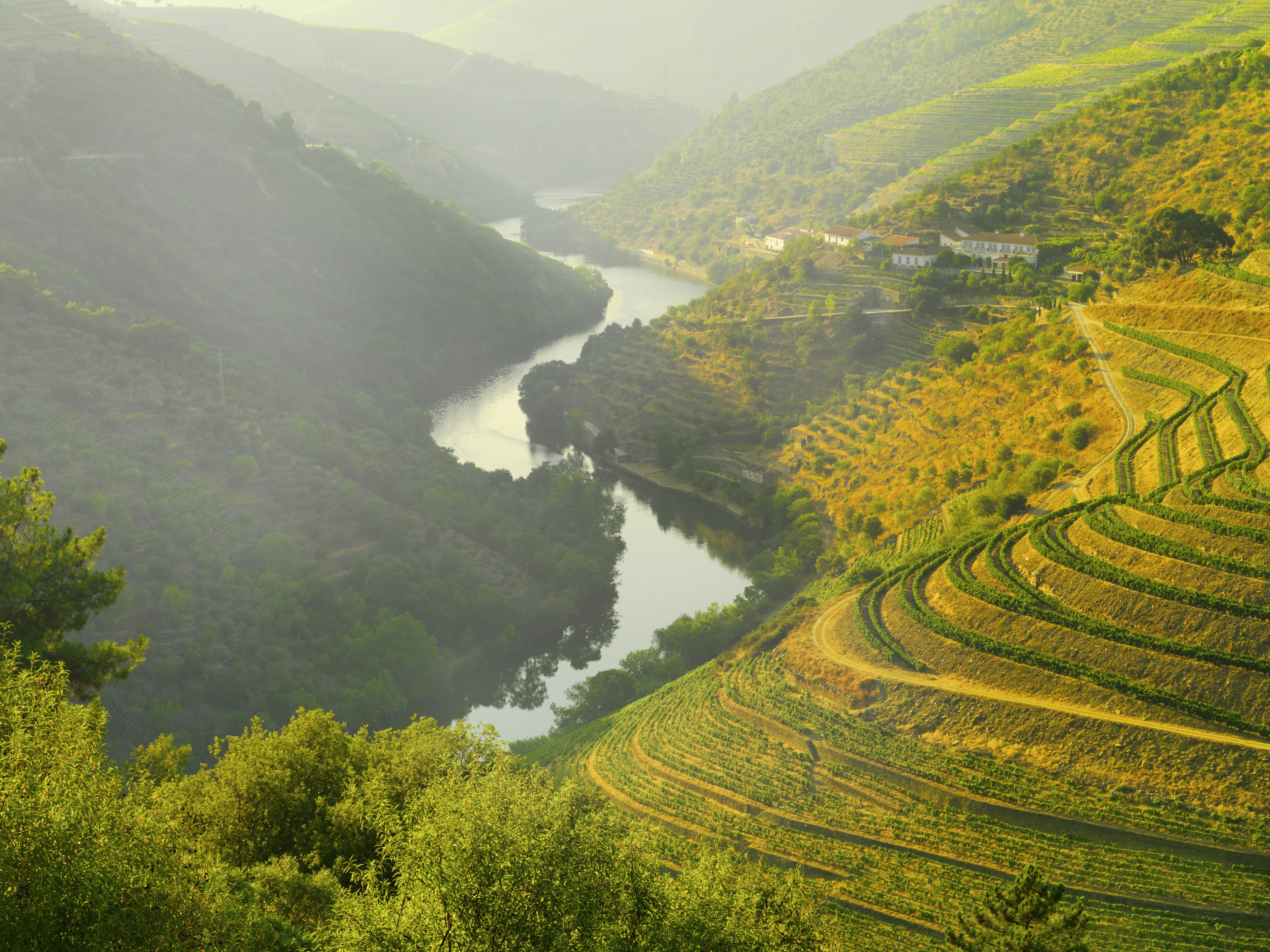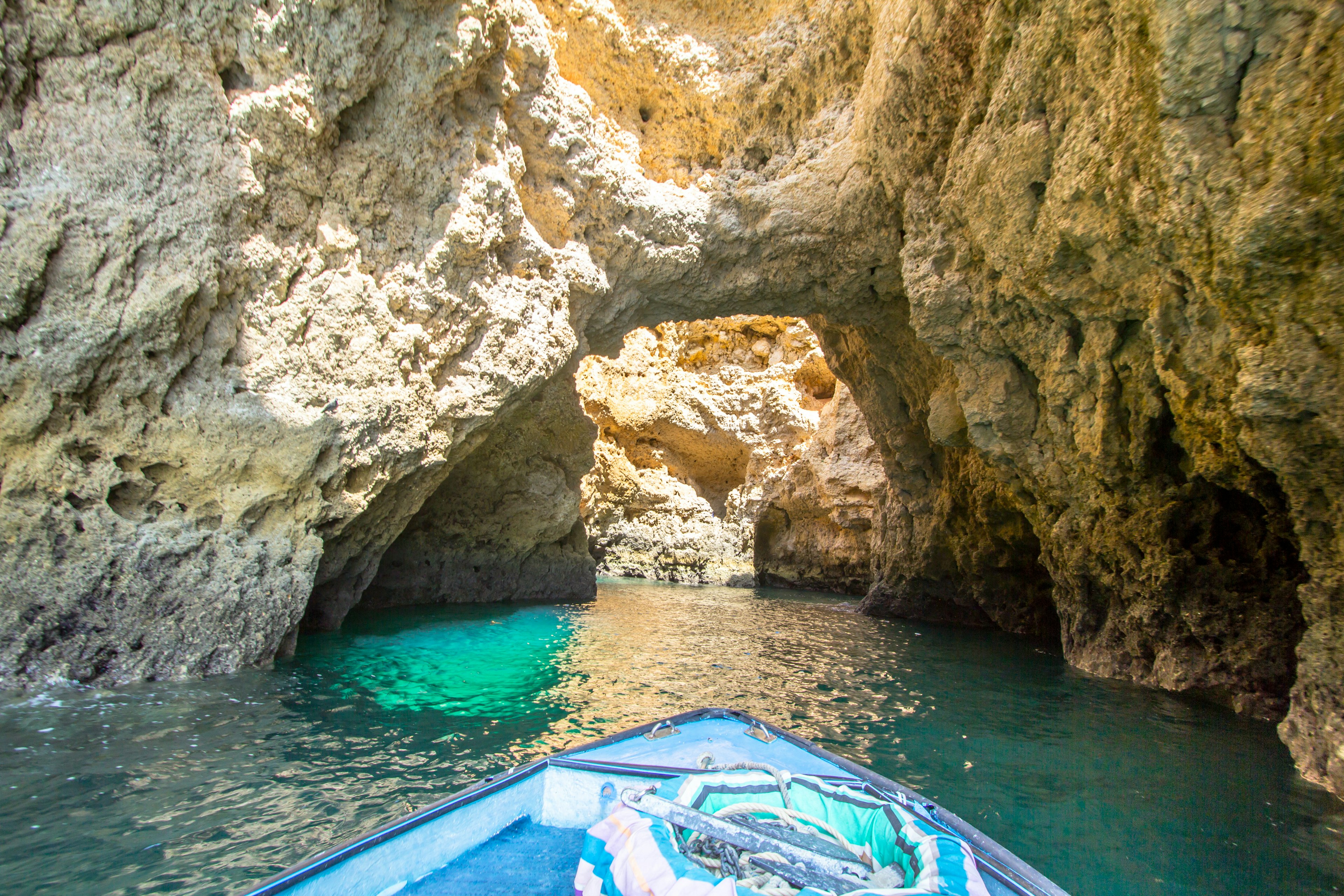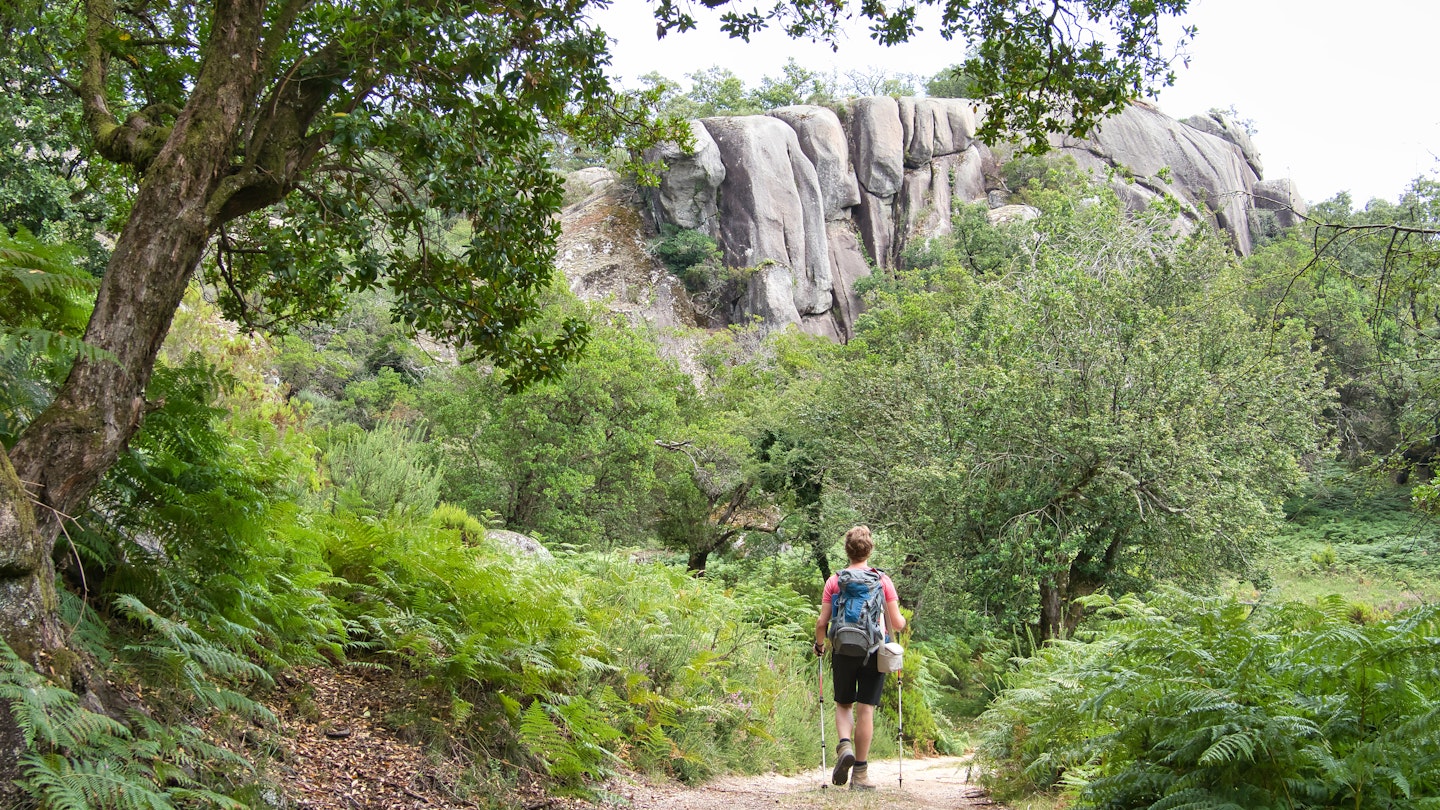Home to cliff-backed beaches, dramatic river valleys, and wildlife-filled wetlands, Portugal is packed with unique places to visit. Whether you’re after otherworldly views on the edge of Europe or a mountain wilderness full of history and natural beauty, you’ll find it in Portugal.
Portugal’s relatively small size means you can see a lot on even a short trip. If time allows, it’s worth tacking on a visit to the Azores or Madeira. These Atlantic islands have soaring peaks, volcanic landscapes, and stunning coastlines. The challenge is simply deciding where to begin. Here are some of the natural wonders in Portugal you won’t want to miss.

Cabo de São Vicente
There’s something thrilling about standing at Europe’s most southwestern edge, a headland of barren cliffs to which Portuguese sailors bid a nervous farewell as they sailed past into the unknown during Portugal’s golden years of exploration. The windswept cape is redolent of history – if you squint hard (really hard), you might see the ghost of the explorer Vasco da Gama sailing past. After taking in the view, visit the nearby Fortaleza de Sagres, which has a 16th-century chapel, imposing fortress walls, and yet more breathtaking views from its clifftop perch.
Parque Nacional da Peneda-Gerês
Tucked away in a northern corner of Portugal, the Parque Nacional da Peneda-Gerês is a wilderness wonderland of craggy peaks, riverside woodlands, and hidden waterfalls. Hiking here isn’t just about taking in the striking landscapes of Portugal’s only national park. The reserve also encompasses stone villages where you can walk cobblestone lanes past the ruins of old mills and once-mighty castles. Sparsely inhabited settlements set within the scenic natural beauty make great bases for exploring remote corners of the park.

Douro Valley
Just east of Porto, the meandering Douro River winds its way past towering hillsides with steep terraces covered by vineyards. This UNESCO World Heritage site offers dramatic views at every bend, whether viewed from the water on a boat excursion or a winery estate overlooking the expansive river valley. Most people just make a short excursion into the area from Porto, but you could easily spend a few days in the region – especially if you explore the Parque Arqueológico do Vale do Côa, home to the most extensive collection of prehistoric rock art in the Iberian Peninsula.
Parque Natural da Ria Formosa
Enclosing a vast area of marshes, salt pans, creeks, and dune islands, this protected lagoon system stretches for 60km and encompasses 18,000 hectares in the eastern Algarve. It’s a hot spot for birdwatchers, as it’s a key stopover on the migration route between Europe and Africa. You can take a boat over to an undeveloped island or stroll along one of the nature trails through the area. Guided kayaking trips are one of the best ways to experience the wetlands.

Benagil Cave
One of the Algarve’s most emblematic sights, this enormous natural seaside cave has a hole in its ceiling through which streaming sunlight illuminates the sandstone and beach below. The only way to access the interior is via water. Numerous companies along the coast run boat trips, and you can hire kayaks to paddle here yourself. Swimming to the caves is discouraged due to strong tides and currents and high watercraft traffic.
Costa Vicentina
Verdant highlands overlook hidden beaches along the Costa Vicentina, a dramatic stretch of shoreline on the western edge of the Algarve. You can come to admire the views while relaxing on the beach or surf some of southern Portugal’s most reliable waves. Outstanding trails wind through this protected region; for instance, you can hike all or part of the 227km Fisherman’s Trail that takes you along cliffs and past glorious beaches.

Ponta da Piedade
Protruding 2.5km south of Lagos, Ponta da Piedade is a dramatic wedge of headland with contorted, colorful sandstone cliffs, complete with a lighthouse overlooking the crystal-clear turquoise water below. In the spring, the sounds of nesting egrets and wild orchids bloom in the surrounding area. On a clear day, you can see east to Carvoeiro and west to Sagres.
Ilha de Tavira
Ilha de Tavira has something for everyone: miles of golden beach, a designated naturist area, busy restaurants and a campground. To top it off, it’s part of the protected Parque Natural da Ria Formosa. Outside high season, the island feels wonderfully remote, but be prepared for crowds during the peak months.
Sete Cidades
The Azores are full of breathtaking views, but the first glimpse of Sete Cidades with its sparkling twin lakes may take your breath away. Crisscrossed by superb walking trails, this stunning area offers routes leading down to the water’s edge. According to local legend, the lakes – one blue, one green – formed from the tears of a shepherd and princess sharing a forbidden love.

Mt Pico
The highest mountain in Portugal, Mt Pico rises dramatically from the Atlantic Ocean at a height of 2351m. This near-perfect cone is not just a postcard view – climbing this stratovolcano is the ultimate hiking experience in the Azores. Climbers should register at the trailhead before embarking on the ascent, which takes approximately two to four hours. Hiring a guide is recommended for those wanting to catch the sunrise from the summit.
Grutas e Centro do Vulcanismo
Top billing on Madeira’s north coast goes to this two-for-one attraction just south of São Vicente. The first part includes a guided tour of local caves, while the second offers a 3D, interactive look at Madeira’s volcanic heritage, making it a great family activity.
Porto Santo Beach
Porto Santo’s sandy beach is the reason most people head to Madeira’s little sister. The sand consists of tiny coral pieces that gently slope into cool Atlantic waves. With minimal development and a wild feel, especially during winter, it’s a perfect escape.
This article was first published Aug 18, 2020, and updated Aug 25, 2022.




